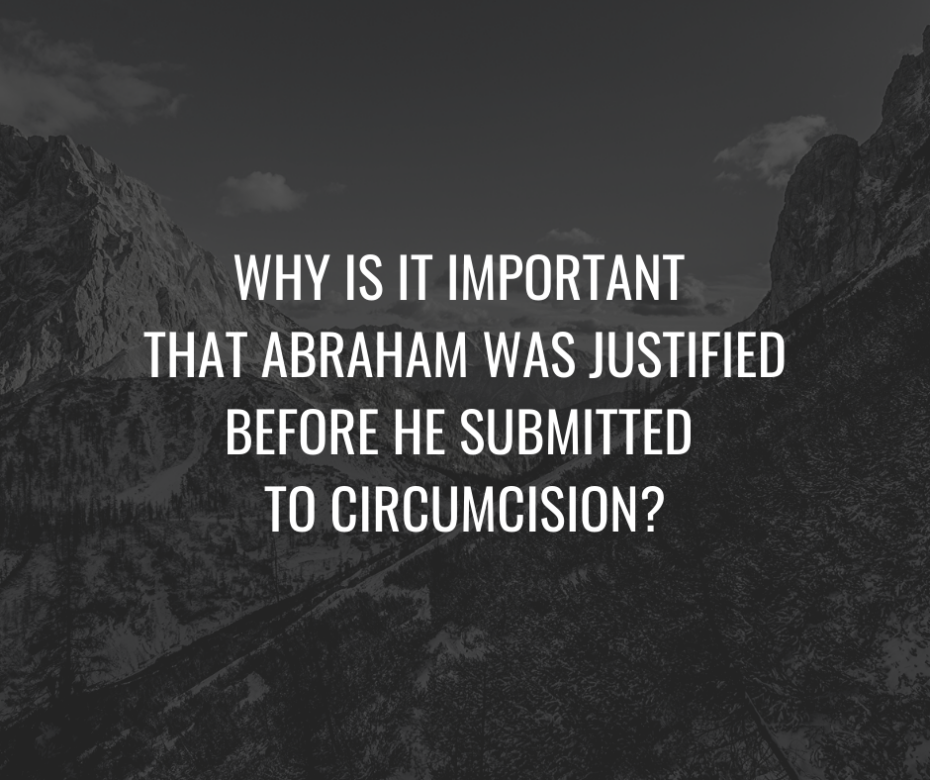“And he received the sign of circumcision, a seal of the righteousness of the faith which he had while still uncircumcised, that he might be the father of all those who believe, though they are uncircumcised, that righteousness might be imputed to them also…”
Today was a rainy and cold day in Dallas. And I was alone in the office all afternoon as Shawn was out of town, and Mark left around noon, and Bethany normally works from home on Fridays. But that meant I was able to write several chapters on my book on one hundred verses in the Bible that teach justification by faith alone, apart from works.
This book is proving both very valuable and a lot of work. It is hard to write just 300 to 500 words on all these verses and to do so in a way that is challenging and thought provoking.
Anyhow, here is some of what I did today.
Circumcision, a Seal of Righteousness
While Jewish believers rightly regard Abraham as the Father of the nation and the Jewish people, they may forget that when Abraham was justified, he was yet uncircumcised, not circumcised. Years after Abraham was justified (Gen 15:6), God commanded him and all the males in his house to be circumcised (Gen 17:1-14). Paul here sees circumcision as a sign (Gen 17:11) and “a seal of the righteousness of the faith which he had while still uncircumcised.” In other words, Paul is suggesting that the true understanding of circumcision is that it confirms the truth of justification by faith alone, apart from works. Longenecker says that Paul here speaks of “circumcision as a sign or seal that functioned to confirm God’s previous gift of righteousness to Abraham” (Romans, p. 506).
The Righteousness of Faith
Paul has already established that righteousness is sourced in God who accounts faith in Christ as righteousness. All of that can be nicely summarized as the righteousness of the faith which Abraham had while still uncircumcised.
The Father of All Who Believed
Abraham was thought of as the Father of Israel, which he was and is. But Paul’s point is that he is also “the father of all those who believe.” If Abraham had submitted to circumcision first and then later had been justified, he “could hardly have been perceived as in any sense a true spiritual father to uncircumcised believers” (Hodges, Romans, p. 119). But since his justification preceded his circumcision, Gentile believers can rightly view Abraham as their spiritual father.
That Righteousness Might Be Imputed to Them Also
Longenecker comments on the definite article before righteousness at the end of verse 11: “The article tēn should be understood as pointing back to the previous use of dikaiosunē in 4:11… ‘the righteousness that we have spoken about previously,’ or, more colloquially, ‘the righteousness of which we speak’” (Romans, p. 507).
Abraham’s justification and subsequent circumcision should lead Gentiles to believe in Jesus and thereby have imputed to them the righteousness of which Paul had been speaking. Hodges comments, “Paul conveys that Abraham was intended as more than a mere prototypical figure exemplifying justification. His case is actually presented in Scripture to encourage Gentiles to believe in order that they too might receive righteousness in the same way” (Romans, p. 120).


